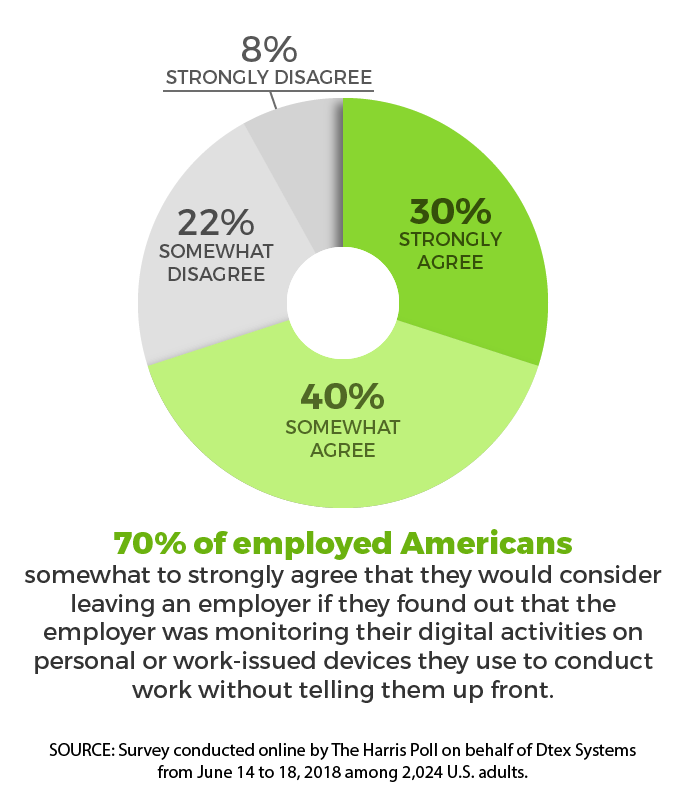77% of Americans would be OK being monitored at work: Poll

A new survey reveals that 77% of Americans are comfortable with their employer monitoring their digital activity — both on personal and work-issued devices they use to work on — as long as the company is transparent about it and lets them know up-front.
However, 70% said they would consider leaving their employer if they were monitored without being told up-front.
The study, which touches on the delicate issue of privacy in light of the Cambridge Analytica scandal, was conducted online by The Harris Poll on behalf of cybersecurity company Dtex Systems among 2,024 U.S. adults, 833 of whom worked full-time.
For the greater good

“Users have an expectation that when you’re dealing with an enterprise, they assume some level of monitoring, but they want companies to be transparent of what people are doing and why,” said Christy Wyatt, CEO of Dtex.
She also pointed out that a big majority — 62% — was also comfortable with employers monitoring their activity if their information was anonymized, where their identity would be somewhat obscured.
Wyatt said that employees understand the rationale, as hackers are increasingly targeting them with phishing or scam emails aimed at compromising their company’s system.

Monitoring large-scale
Wyatt said that Dtex works with many companies across industries, from nuclear power facilities to retail, to help them monitor for risky behavior.
She also drew a distinction between monitoring on Facebook and other social networks, and monitoring work devices. “The lines were always clear. You have a company laptop — you did company work on a company laptop, especially in high security jobs,” Wyatt said. But when it came to social networks, there was a higher expectation of privacy since it was their personal life.
Wyatt believes that there is a trend towards more nuanced monitoring, where data collection and analytics will play a bigger role in identifying risky behavior.
In the future, Wyatt said that instead of collecting massive amounts of irrelevant information — like an employee’s bank account — companies can have more oversight, which can prevent instances of insider trading or sabotage.
Related:
